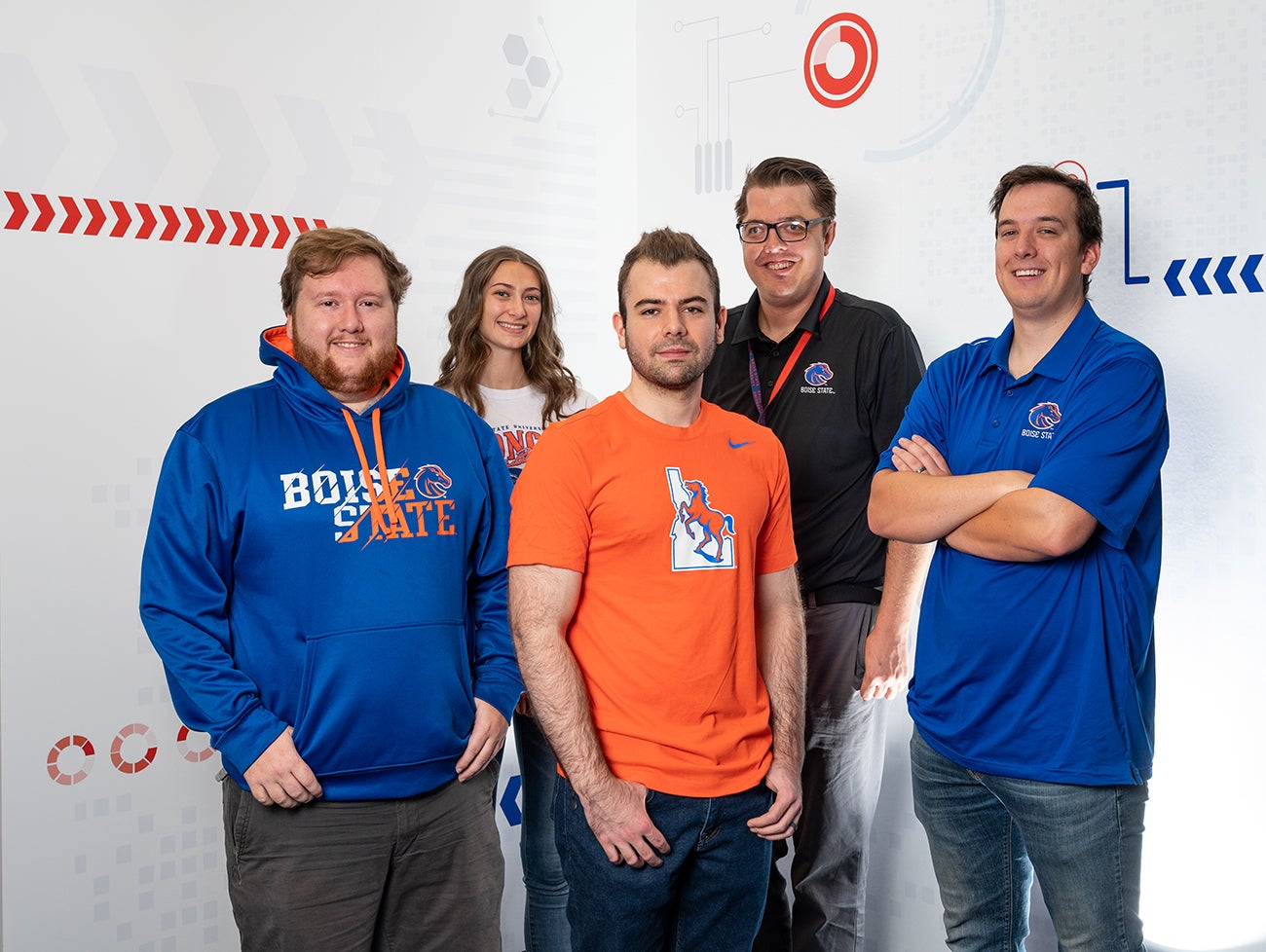
“Welcome to the Cyberdome” sounds like a science fiction movie, but to the Boise State students learning job skills and to the Idaho rural communities getting free protection against hackers, it’s very real and valuable in a world lacking trained cybersecurity personnel.
“From a football perspective, we’re only able to put seven players on a field of 11 players,” said Edward Vasko, director of Boise State’s Institute for Pervasive Cybersecurity. “The other team is always on offense, it only has to score once, and our seven players have to be perfect every time. You can see why we’re losing. It’s not about the technology — it’s about the fact that we don’t have enough people.”
What is the Cyberdome?
The Cyberdome is a platform for skill set development within the Institute’s overall mission of workforce development for students and providing employers with a great workforce, Vasko said. Students in cybersecurity degree programs were getting a lot of knowledge and theory, along with some simulations. “We’ve amped that up by giving students real-world experience,” similar to the rotations that nurses and doctors go through in the medical field,” he said.
Boise State is doing this by partnering with rural communities to provide them with free cybersecurity expertise through six-month student internships.
“We’re not looking to work with communities that can afford commercial providers or have cybersecurity staff,” Vasko said. “We work with rural communities that can’t attract or retain cybersecurity staff or have access to effective commercial tools to detect adversaries. We’re giving the rural communities something they can’t afford and giving students real-world competency development.” Working with rural cities also means students can stay within their local communities.
Funded through grants from Idaho Global Entrepreneurial Mission Higher Education Research Council, the Cyberdome program is currently up to 23 students, with a goal of 56, Vasko said. And the major Idaho companies on his advisory board are all looking forward to hiring the graduating students, he added.
Boise State is partnering with Stellar Cyber Inc., a Santa Clara, California-based supplier of cybersecurity products. Students get trained on Stellar Cyber products and can take that expertise to other jobs, even if those companies use different products, Vice President of Marketing Steve Garrison said.
“When you talk to people in the industry, students are too theoretical,” Garrison said. “If it takes you six months to a year to learn the hands-on aspect, who’s the guinea pig who gives you the first job?”
In addition to providing the cybersecurity products, Stellar Cyber benefits by building a workforce already trained on its products, Garrison said. The company is creating a talent hub to help provide workers for its customer base of managed security service providers (MSSPs) – companies with 30 to 200 employees and a desperate need for more, he said. “For our MSSP customers,” he said, “let’s make it easier for our partners to come in and recruit.”
Protecting Rural Communities
Cyberdome is saving Idaho’s rural communities money, and is giving them functionality they’ve never had before, said Todd Mandeville of Ketchum Computers Inc., a contractor who’s been managing the city of Sun Valley’s information technology for seven years.
Under faculty supervision, students first performed a baseline security assessment of the city’s systems, and then installed monitors to look for irregular activity on the network, he said. When something gets flagged, students examine the situation and, if necessary, report it to him.
“The city could go out and get this type of monitoring commercially, but it would be very expensive,” on the order of tens of thousands of dollars per year, Mandeville said. “I don’t think it’s something I could accomplish myself, even if I had time to watch the logs. The power is that they have a team of students and staff who can look at the results.”
Mandeville plans to recommend the Cyberdome program to other cities.
The Student Perspective
Students in the program say it’s teaching them practical skills that will help them when they graduate. The 20-hour-a-week internship pays students an above average wage, and in some instances includes industry certifications as part of the program, Vasko said.
“At the beginning of the school year, I was coming in very lost in my knowledge of cyberspace,” said Manuel Dominguez-Diaz, from Twin Falls, Idaho, currently in his third year. “I did know a basic amount, but it felt like that was not enough to comprehend how cyberspace functioned.”
Hearing about the Cyberdome internship piqued his interest, especially because it could be done remotely.
“I knew this was a perfect way of some initial (even basic) experience within the cyber field, especially while being a few hundred miles away from Boise State,” Dominguez-Diaz said.
The program is also helping veteran Jeff Crawford, a graduate student in cybersecurity living in the Treasure Valley, find a new career after the military.
“The cybersecurity community shares these same goals of helping keeping peoples’ lives intact and I feel the saying I learned in the Army applies, ‘one team, one fight,’” Crawford said.
Taking classes and working with the Cyberdome program helps students discover what they want to do.
“Ultimately, any role in the cybersecurity realm that can help me keep people safe, happy, and create a dynamic environment of challenges isn’t a job, but a calling,” Crawford said.
—By Sharon Fisher